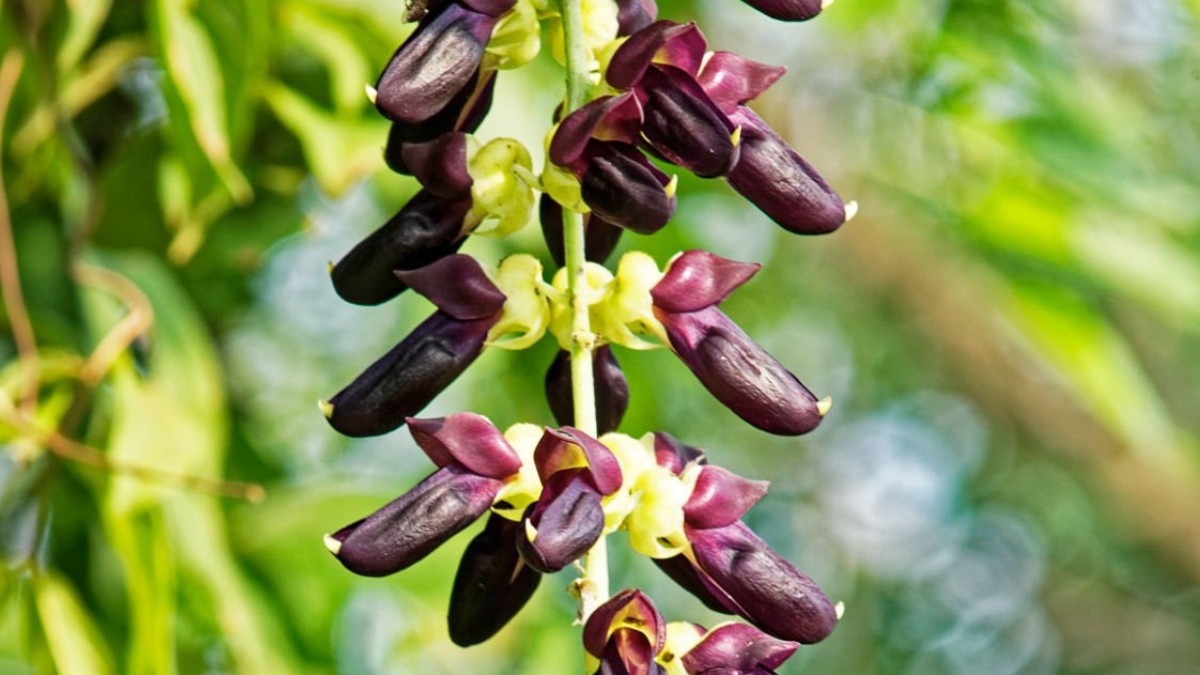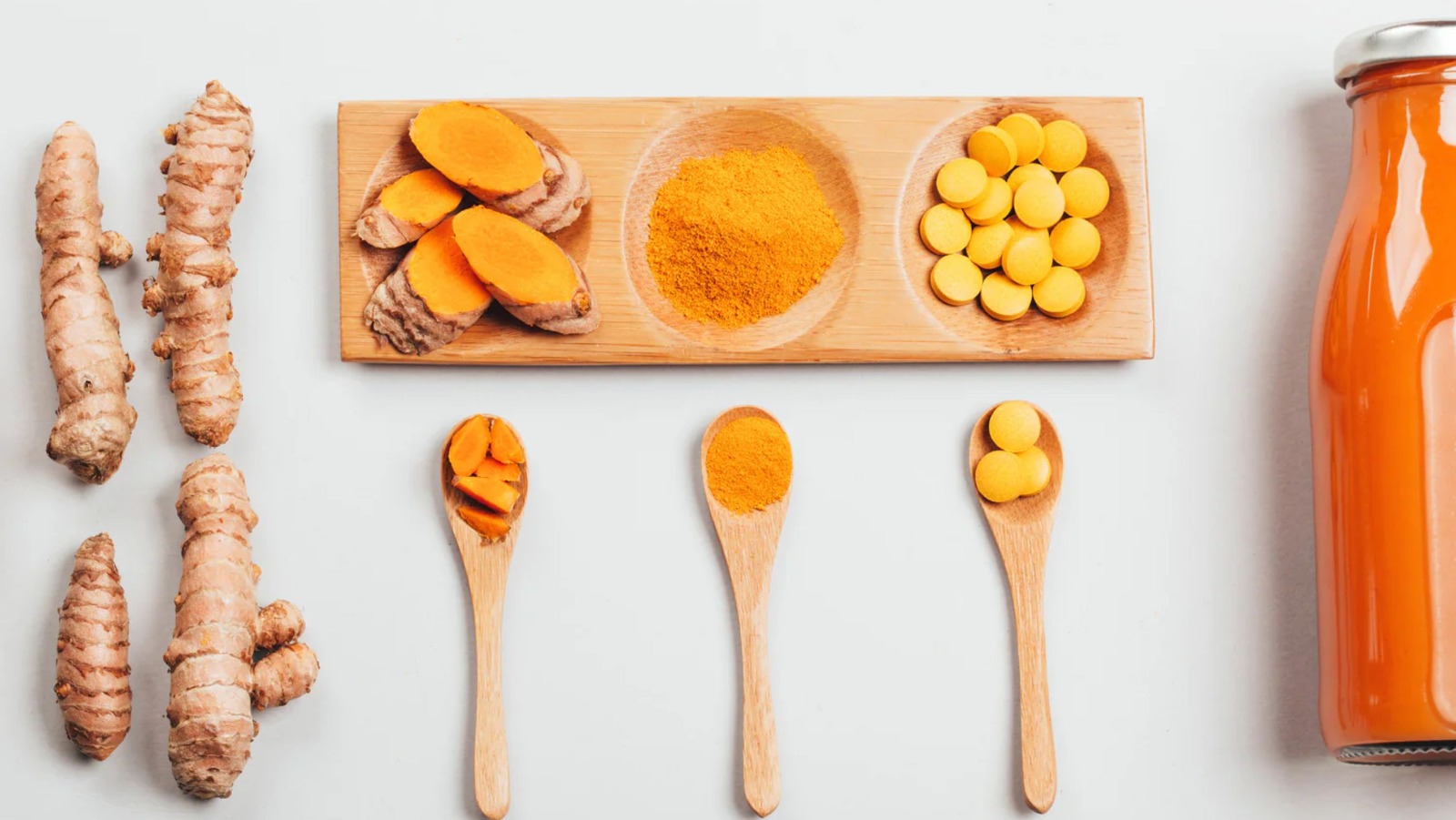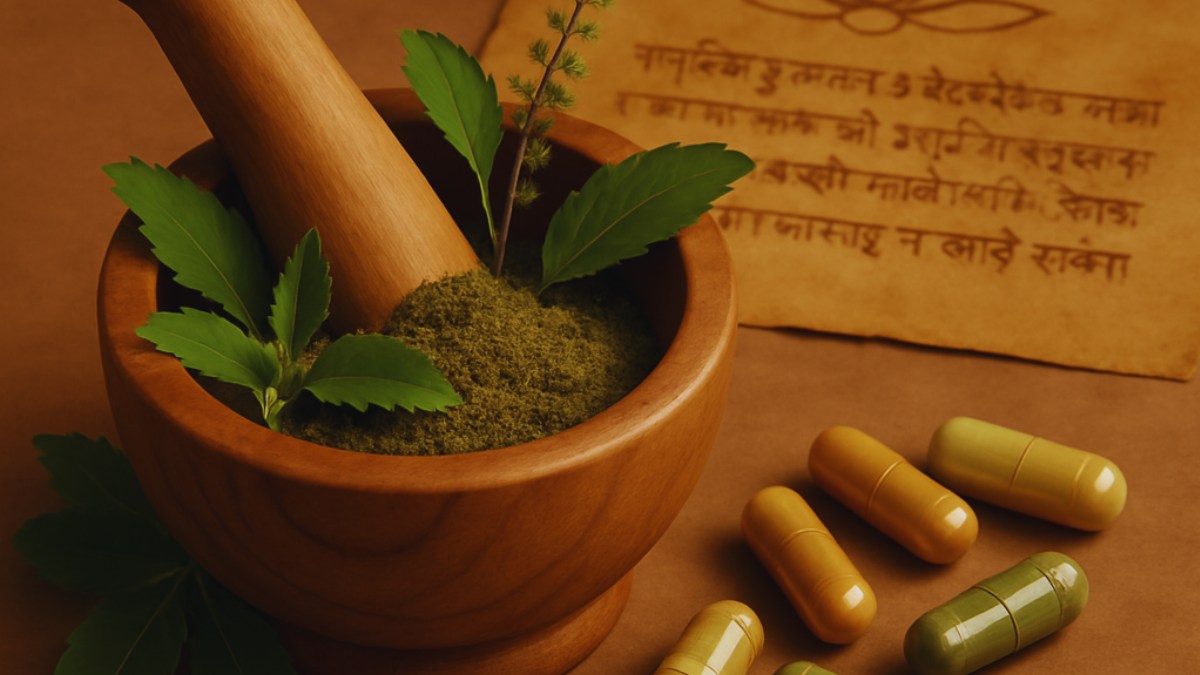The beans are borne in very fuzzy seed pods, which cause a severe itch if they come in contact with the skin. This is due to a protein produced and present on the hairs called mucunain—causing them to be used in some brands of ‘itching powder’. These itchy hairs are absent through processing, so they don’t pose a risk to consumers.
The flowers are borne in panicles reaching up to a foot long and are typical pea flowers, white or purple in color.
The Mucuna pruriens is an important cover crop in many areas of the world, as it is capable of fixing nitrogen and fertilizing the soil.
The beans (called ‘Benguk’) are also consumed in some parts of the world, such as Indonesia, where they are eaten and also fermented into a form of tempe known as Benguk tempe. The beans are known for their high protein content (20-29%), as well as containing a good amount of carbohydrates and minerals.
Traditional Medicine & Constitutents
Mucuna pruriens has been long used in both Unani and Ayurvedic traditional medicine systems and known mostly for its use in rejuvenation of tissues throughout the body, male infertility, nervous disorders, and also as an aphrodisiac. It is known to be especially helpful for vata and pita doshas with sweet and warming characteristics that contribute to its nourishing and restorative properties.
As the Mucuna pruriens has a high content of L-dopa (between 3-7%), it is also used as a dietary supplement for supporting the nervous system, men’s health, dopamine production, mood support, occasional stress, and supporting motor skills, coordination, cognition and focus.
Other bioactives present in Mucuna include glutathione, lecithin, gallic acid, beta-sitosterol and beta-,oleic-, linoleic- and palmitic acids.

The Functional Approach
Mucuna is often used for its beneficial content of L-dopa, the precursor in the synthesis of Dopamine, a pleasure producing neurotransmitter in the brain. It is thought that higher Dopamine levels are associated with happiness, as Dopamine is responsible for giving us a mood boost when we achieve a goal, listen to music or do exercise. As Dopamine is also associated with increased ability to focus, Mucuna is sometimes used for promoting healthy cognition. In preclinical research, interestingly, Mucuna was found to not only benefit dopamine levels, but also endogenous production of two other mood neurotransmitters, serotonin and norepinephrine.
Nutrigenomic testing identifies genetic variations in people (SNPs), such as the rs1800497, associated with lower dopamine receptor activity translating to an increase in reward-seeking behaviors for these people. The market is seeing an increase in functional medicine practitioners or in personal nutrition who have been recommending nutritional products with Mucuna for supporting L-dopa for this reason.
Mucuna has long been used as a natural aphrodisiac in Ayurveda, with its additional potential benefits to blood sugar and stress, it is an obvious choice for further clinical investigation into libido effects. In a study on the use of Mucuna for promoting fertility in men, Mucuna was found to promote healthy testosterone levels, luteinizing hormone, Dopamine, adrenaline and noradrenaline levels. Additionally, Mucuna also benefitted sperm count and motility.
In preclinical research, Mucuna has exhibited potential in balancing blood sugar. Mucuna is theorized to benefit blood sugar balance either possibly due to its high mineral content or possibly due to its content of insulin-like compounds. The minerals present in Mucuna include calcium, magnesium, phosphorus, iron, manganese, zinc and copper.
Early clinical research have shown potential benefit for the use of Mucuna for supporting stressed individuals. In one trial, it reduced psychological stress and cortisol levels. There is also some traditional use of Mucuna for supporting sleep, and in one trial it showed a benefit in combination with another tropical herb.
Most of the applications and clinical interest in Mucuna revolves around its natural content of L-Dopa; however, traditional uses and bioactives present in Mucuna point to the potential for further investigation into uses beyond those where L-Dopa is deemed the active constituent. Indeed, scientific investigation has found a wide range of activities, including antioxidant and aphrodisiac activities. As Mucuna is not only a source of bioactives, with its contents of vital macromolecules and protein isolates, it is well-poised for further nutraceutical development.
Thank you for Reading!
*This content is for informational and educational purposes only. It is not intended to provide medical advice or to take the place of such advice or treatment from a personal physician.







